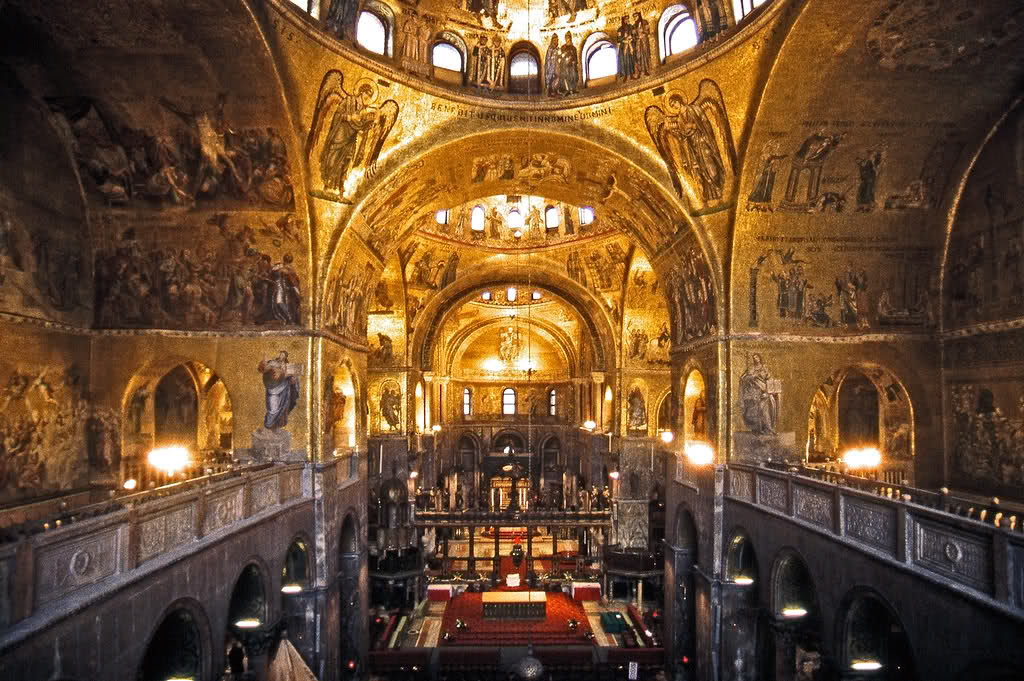As painted masterfully by Titian, Doge Andrea Gritti is remembered for his imposing and proud demeanour, but also for his forward-thinking approach to things, and the radical changes he made during his time in power, not least in music. And, as head of the Basilica, he had the last say on who the maestro di cappella, the choir master, should be. Usually the maestro was appointed from
amongst those musicians who were already part of the choir, and being a singer in St. Mark’s choir already took something special. To appoint a choir master from not only outside the choir, but from outside Venice seemed unthinkable.
But Gritti did precisely that when he called Anton Willaert, a Dutch composer, to lead the Basilica’s choir. Willaert was one of the most talented composers of his day, who had achieved celebrity status across Europe, and he certainly did not let his reputation down. He created some of his finest music here in the Basilica, and being immensely creative he liked to try out new things. A choir until then would always sing as one, so he introduced the “coro spezzato”, two choirs singing
alternately, which was truly revolutionary at the time.
After Willaert, there were no really big names to lead the hcoir for many decades until the next and only other non-Venetian maestro di cappella was appointed: Claudio Monteverdi. Again, although official rules said differently, the Doge would not let such things get in the way of hiring the best in the business.
Monteverdi was an eclectic composer with a theatrical touch and inventor of one of the first melodramas, where theatre and singing were combined. What we today call opera.
With Monteverdi, the structure of the choir itself changed, giving rise to celebrity singers of sorts. Until then, the early 17th century, a choir was a tight unity made up of individuals who always sang in unison. From then on, however, solo parts were created more and more on the backdrop of a supporting choir, and individual singers would have the opportunity to sing solo pieces and stand out from the rest of the singers. In time the public would begin to recognise the best of these solo singers, their names would be worth remembering and to some extent they’d even become a public personality, even if not quite achieve the VIP status of singers today.






